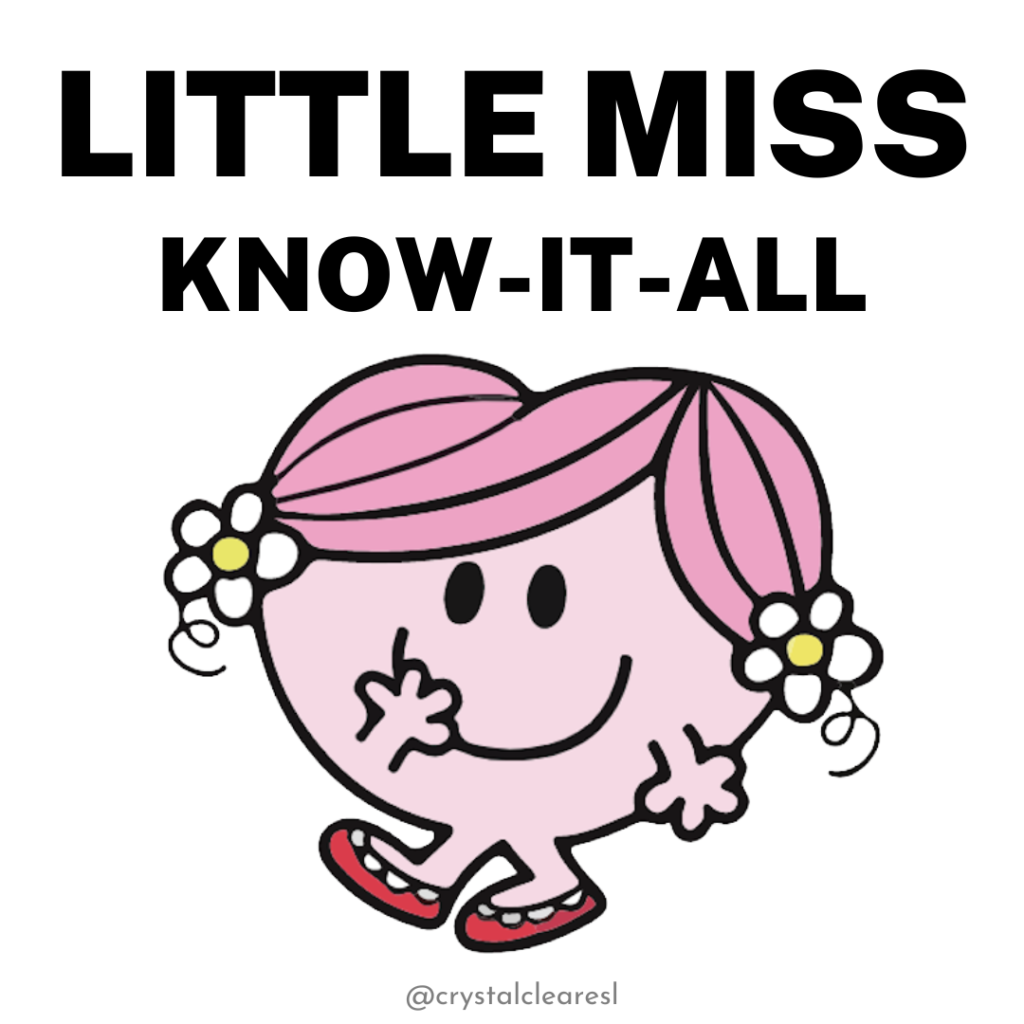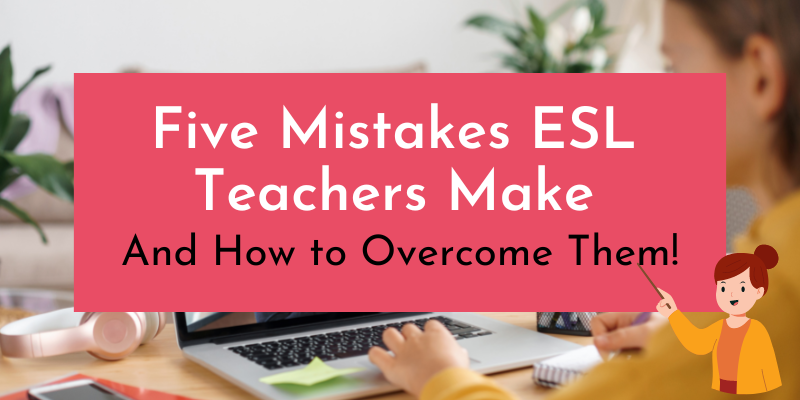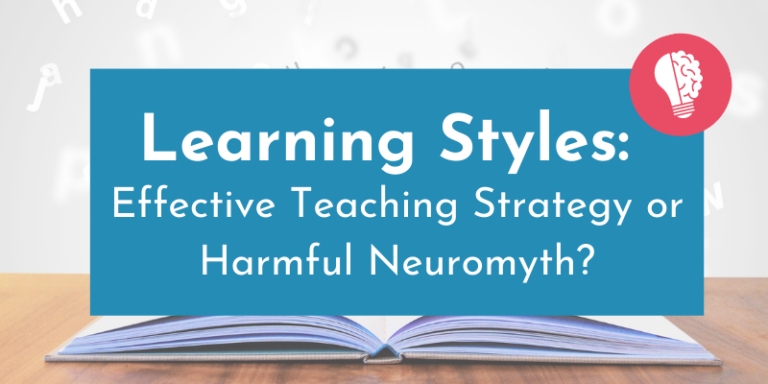Five Mistakes ESL Teachers Make
Much like our students, we learn from our mistakes, and much like our students, we are bound to make mistakes at some point! And guess what? That’s totally OK! Mistakes are unavoidable, even for the most skilled teacher, but I’m here to remind you that mistakes are an opportunity to learn!
Here are five mistakes you could be making on your ESL teaching journey:
Mistake #1: Comparing yourself to other teachers
You know that little dude who sits on your shoulder and whispers in your ear, “You’re not good enough”? Yup, I know him too! It’s 2023, and time to say ‘ciao’ to that imposter syndrome. Comparing yourself to other teachers can be demotivating and counterproductive to becoming the best teacher YOU can be. In Japanese, the idiom ‘oubaitori’ (oh-buy-toe-ree) means everyone has a different timeline and unique path. Oubaitori reminds us to focus on your own progress rather than trying to measure yourself against others. While it’s great to have teacher role models you can learn from and aspire to follow in their footsteps, everyone’s teaching journey will look different. What works for some might not work for you and your unique abilities or niche offerings. If you find yourself constantly comparing yourself to other teachers, rather get an accountability partner or mentor who can support you in becoming the best teacher you can be. Your unique teaching journey might just be the inspiration another teacher is looking for!

Mistake #2: Going the distance alone
I remember when I started teaching for an online school and went days without communicating with anyone other than my students *cue the violin*. Online teaching can feel like a lonely island, but it need not be, especially when there are teachers all over the world who are in the same boat as you! Don’t make the mistake of trying to go the distance alone and isolating yourself from other teachers and the ESL teaching community. You can join an existing group of freelance teachers, like Crystal Clear’s ESL/EAL Masterclass, or start a group of your own. Social Media platforms like Instagram and TikTok are becoming pretty popular for ESL teachers to share their teaching adventures, so don’t be shy to put yourself out there! A teachers’ community is a great place to ask for advice, share the challenges you face, be inspired by other teachers, and learn something new!
Mistake #3: Saying ‘yes’ to every student

Remember that Jim Carey movie called Yes Man? In this movie, Jim’s character learns that too much of anything is not always a good thing, and this couldn’t be more applicable to us freelance teachers. As tempting as it can be to say ‘yes’ to every potential student, especially when starting, it’s better, in the long run, to specialise in a specific age group, subject, or demographic. Define your niche and streamline your marketing tactics to attract the students you WANT to teach. Having a defined niche will help you streamline your lesson preparation, be more efficient with your time, and refine your best product- yourself! A teaching niche can help you become the go-to guru in your field! When you streamline your skills and refine your dream student, you’ll be more likely to attract students who are looking for your specific skills!
Mistake #4: Ignoring the culture

How much do you know about your student’s culture? Cultural awareness is one handy tool to have in your teaching toolbox! Cultural awareness in the classroom can help you avoid awkward misunderstandings and improve the delivery of your lessons. What’s acceptable in your culture may be deemed rude or condescending in your student’s culture. If you don’t equip yourself with a basic understanding of your student’s cultural etiquette, this could result in a real blushing moment- for you and your student!
Chinese culture, for example, is rooted in Confucianism, so respect and honour are pillars of building a long-lasting business relationship with your students. Clicking your fingers, pointing at someone, and whistling is considered rude in Chinese culture, so avoid doing these things with your Chinese students. If you teach Polish students, avoid provoking discussion of ethical issues. If this is unavoidable or comes up unexpectedly in your class, bear in mind that the general Polish opinion on ethics is known to align with that of the Catholic Church.
Younger students may not be offended as they are still learning the norms of their own culture, but adult learners may feel uncomfortable or offended by something considered inoffensive in Western culture. That doesn’t mean you should disregard cultural awareness when it comes to young learners as you never know who is listening off screen. Other than helping you avoid an awkward situation, you can use cultural knowledge to enhance your lessons and make them more relevant and relatable to your students.
Mistake #5: Little Miss (or Mister) Know-it-all!

Little Miss Know-it-all and Little Miss Can’t-be-wrong are the mean girls you DON’T want to sit with! We’re looking at you too, Misters! Even as the most skilled teacher of English, sooner or later, you will come across something you don’t know! If your student asks you something you don’t have an answer for, use this as an opportunity to concede your knowledge has its limitations and explore for the answer you need. Saying something like, “That’s a great question, let’s go find the answer!” will be far more respected by your student or their parents than trying to have an answer for everything. Learning is a two-way street, and if you get stuck answering a question, use this as an opportunity to expand your and your student’s knowledge!
Have you made any of these mistakes on your teaching journey? What did you learn from it and how did you overcome the challenge you were faced with? Leave us a comment on this post and share your experiences with our community!







